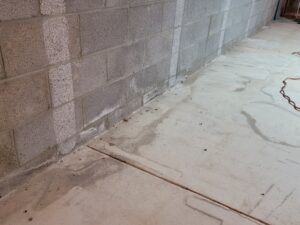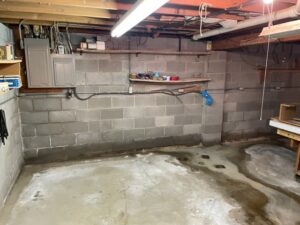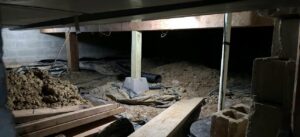As drought conditions continue to afflict various regions, homeowners face a new set of challenges related to their home’s foundation. Foundation repair becomes a serious concern during dry spells, as moving soil conditions lead to settling or sinking foundations, bowing walls, and cracks in the walls. In this article, we will explore the impact of drought on foundations and provide tips into effective plans for addressing these issues.
The Relationship Between Drought and Foundation Problems
When the soil around a house becomes excessively dry due to prolonged drought, it tends to shrink and contract. This soil movement causes a significant shift in the support provided, creating creates voids and empty spaces beneath the foundation. As a result, the foundation may begin to settle or sink, leading to visible signs of damage such as cracks in the walls and bowing walls. Foundation damage can manifest in various ways. It is crucial to be aware of the warning signs and address any foundation issues quickly to prevent further damage to your home.
Settling or Sinking Foundations
One of the most common foundation issues exacerbated by drought is the settling or sinking of foundations. When the soil beneath a foundation becomes dry, it loses its ability to provide stable support. Consequently, the foundation may sink or settle unevenly, causing structural imbalances throughout the house. Signs of a settling foundation may include uneven floors, jammed doors or windows, and visible cracks in the walls or ceilings. Identifying these signs early on can help you take proactive steps to repair the foundation quickly.
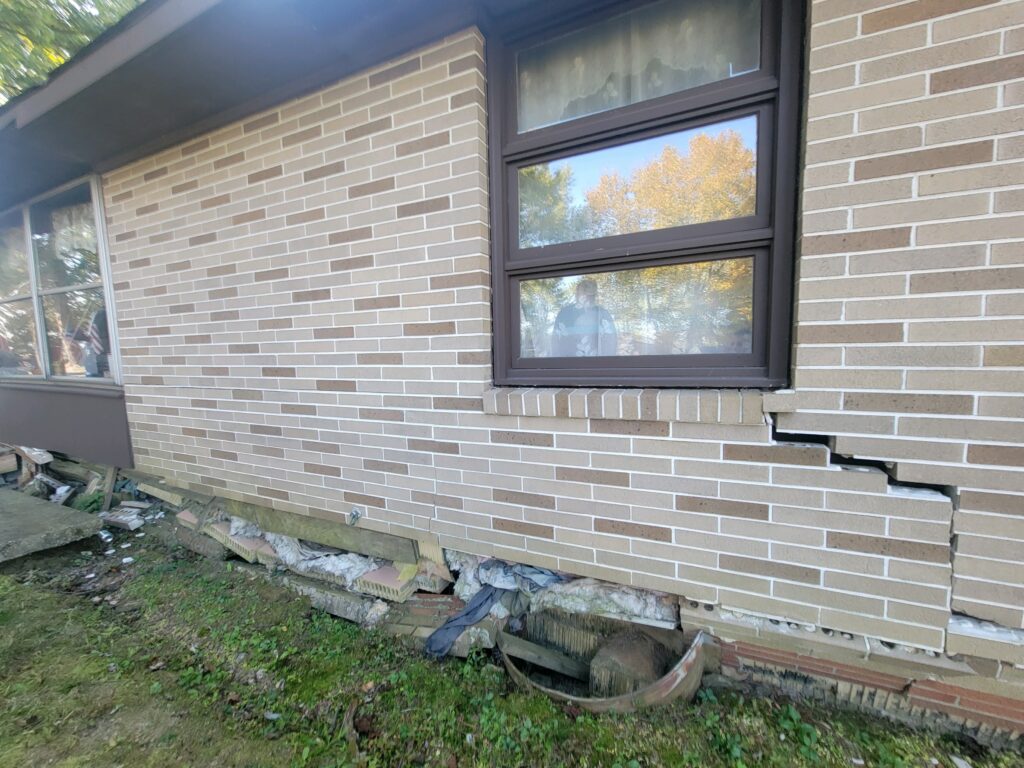
Bowing Walls
Another common problem during drought conditions is the bowing of foundation walls. As the soil surrounding the foundation shrinks, the lateral pressure exerted on the walls decreases. This reduction in pressure can cause the walls to bow inward or outward, compromising the structural integrity of the entire building. Bowing walls often manifest as visible cracks or bulges in the walls, which should be promptly addressed to prevent further damage.
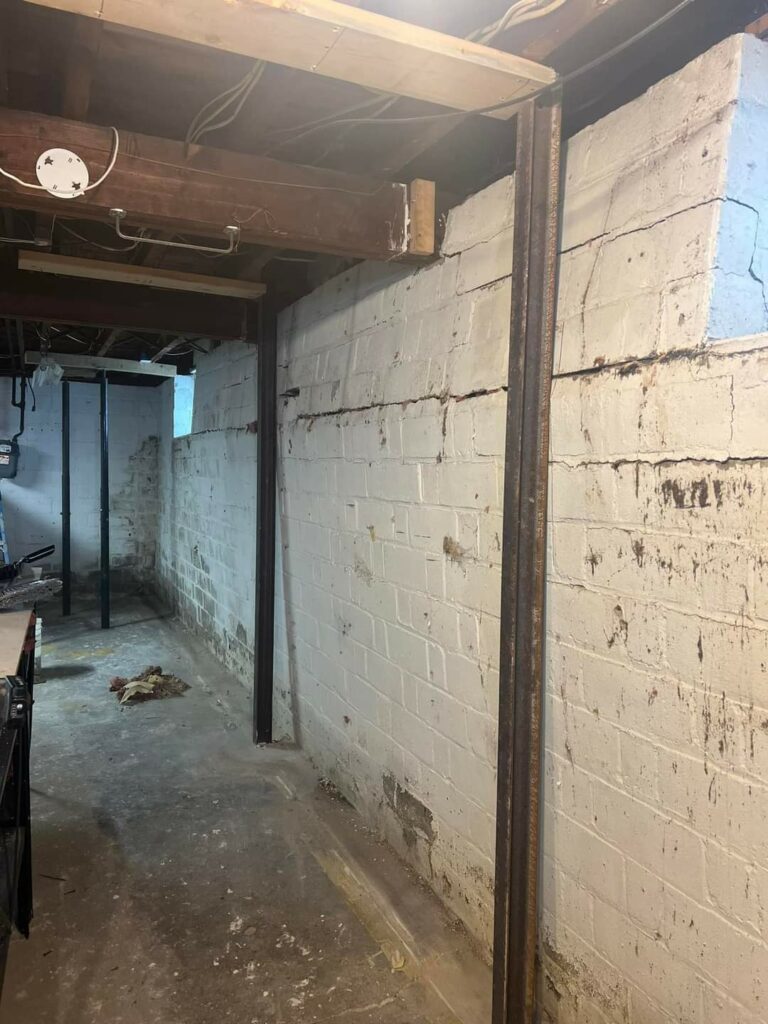
Cracks in the Walls
Cracks in the walls are perhaps the most apparent and alarming signs of foundation issues during a drought. As the soil dries and contracts, it creates an imbalance of pressure on the foundation, resulting in cracks throughout the walls. These cracks may be hairline fissures or more severe fractures, depending on the extent of the foundation’s movement. Horizontal or stair-step cracks are particularly concerning and may indicate foundation movement. Ignoring such cracks can lead to water infiltration, compromising the interior environment and potentially exacerbating the foundation problems.

Addressing Foundation Repair During a Drought
Professional Inspection
When it comes to foundation repair during a drought, timeliness is of the essence. If you notice any signs of foundation issues, it is crucial to seek out a professional foundation repair expert. They can assess the severity of the damage and recommend appropriate solutions. It is wise to have a professional foundation expert regularly inspect your home’s exterior for cracks or gaps and seal them promptly to prevent moisture penetration.
Soil Moisture Maintenance
Implementing measures to maintain adequate soil moisture around the foundation is crucial during a drought. Regularly watering the soil surrounding your home, installing soaker hoses, or using moisture-retaining materials can help prevent excessive drying and minimize soil shrinkage. Trees and large shrubs near your home can absorb moisture from the soil. This means potentially causing the soil to dry out more quickly. Regularly water these plants, as well, during dry spells to minimize their impact on the soil moisture levels near the foundation.
Foundation Stabilization
Foundation repair methods such as underpinning, helical or push piers, or slabjacking can help stabilize a sinking or settling foundation. These techniques provide additional support and help to restore the foundation’s stability.
Wall Reinforcement
To address bowing walls, various techniques can be employed, including the installation of wall anchors or carbon fiber reinforcement straps. These solutions counteract the inward or outward pressure and restore the walls to their original position.
Crack Repair
Cracks in the walls should be promptly repaired to prevent further deterioration. Epoxy injections or carbon fiber staples are commonly used to stabilize and seal the cracks effectively, ensuring the long-term strength of the foundation.
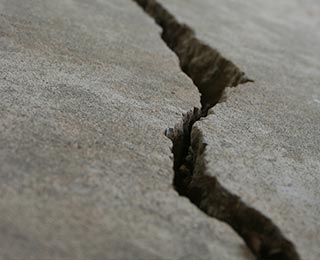
“Identifying signs of foundation issues early on can help you take proactive steps to address the issue promptly.“
During a drought, foundation repair becomes a crucial concern for homeowners. Settling or sinking foundations, bowing walls, and cracks in the walls are all potential issues made worse by dry soil conditions. Recognizing the signs of foundation damage, understanding the impact of drought on foundations, and acting right away with professional foundation repairs are vital steps in saving your home’s structural integrity. Ignoring or delaying necessary repairs can make the problem worse, leading to more in-depth and expensive damage. By acting quickly, you can minimize the impact of the drought on your foundation and prevent further structural deterioration. Consulting with a professional foundation repair expert will provide you with an accurate assessment of the situation. You will also be provided with any necessary steps to rectify any issues.
Pioneer Basement Solutions is a basement foundation repair and waterproofing organization with over 40 years of experience. Pioneer Basement Solutions can offer you a free, no-obligation quote tailored to your needs. Contact us today for a free inspection of you basement foundation repair and replacement needs.


